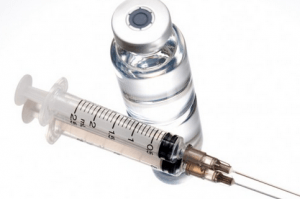Africa CDC announces over 17,000 Mpox cases on continent
 Africa is faced with another public health emergency as Mpox cases are increasing on the continent. This is happening just two years after the outbreak of the COVID-19 pandemic.
Africa is faced with another public health emergency as Mpox cases are increasing on the continent. This is happening just two years after the outbreak of the COVID-19 pandemic.
The Africa Centres for Disease Control and Prevention (Africa CDC), a health agency of the African Union, has announced that 17,541 cases of Mpox have been recorded in 12 Africa countries this year, including 517 deaths.
According to the agency, the cases have been recorded in 12 countries in four regions of the continent, Southern, Eastern, Western and Central, except Northern Africa. One country in Southern Africa – South Africa, three countries in Eastern Africa; Kenya, Rwanda and Uganda; five countries in Central Africa; the Democratic Republic of Congo (DRC), Burundi, Central Africa Republic, Congo Brazzaville and Cameroon, and three countries in West Africa – they are Nigeria, Ivory Coast and Liberia.
The Africa CDC says the data represents a 160% increase of the cases by end of July this year, compared to the same period in 2023.
It also indicated that the DRC has reported the highest number of cases, accounting for 96% and 97% of deaths.
The World Health Organisation (WHO) describes Mpox (monkeypox) is an infectious disease caused by the monkeypox virus. It can cause a painful rash, enlarged lymph nodes and fever. Most people fully recover, but some get very sick.
According to the WHO, anyone can get Mpox. It spreads from contact with infected:
- persons, through touch, kissing, or sex
- animals, when hunting, skinning, or cooking them
- materials, such as contaminated sheets, clothes or needles
- pregnant persons, who may pass the virus on to their unborn baby.
Even though Ghana has not recorded any case of Mpox in 2024, the country has activated an emergency response plan to address a potential threat of Mpox outbreak in the country.
The Ministry of Health in a statement said although Ghana recorded 120 cases of Mpox in 2022 and eight cases in 2023 respectively, there had been no reported cases in 2024.
The Ministry therefore is urging the public to take proactive measures to prevent a resurgence of the disease.
It advised the public to utilise the available healthcare facilities provided by the Ghana Health Service and Teaching Hospitals for any symptoms or concerns related to Mpox.
The statement indicated that early detection, timely reporting, and prompt treatment were crucial to containing the disease and preventing further spread.
In another development, the International AIDS Society (IAS) is calling for the immediate distribution of effective Mpox vaccines amid the upsurge in the disease in especially the DRC, and across many other African countries.
“The IAS urges a three-pronged response: rapid and unbureaucratic vaccine delivery to African countries, the establishment of rapid and free testing facilities within communities, and clear non-stigmatizing messaging to inform communities about symptoms and how to prevent the spread,” IAS President Beatriz Grinsztejn has said.
By Emmanuel K Dogbevi
Copyright ©2024 by NewsBridge Africa
All rights reserved. This article or any portion thereof may not be reproduced or used in any manner whatsoever without the express written permission of the publisher except for the use of brief quotations in reviews.
